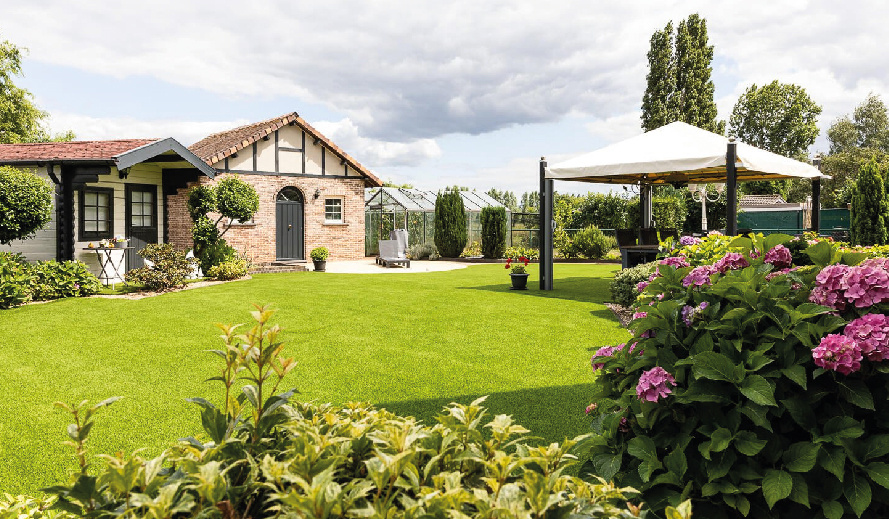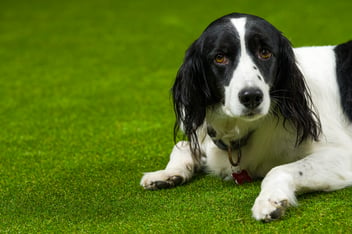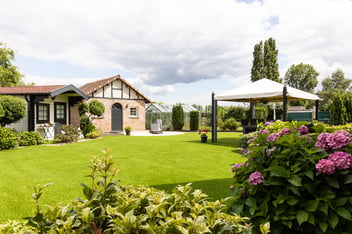Is artificial grass durable?

Artificial grass is a versatile solution for anyone who wants a green lawn without the maintenance that natural grass requires. But there are still many questions and misconceptions about this product: is artificial grass durable or not? And what about water permeability? In the video below, SBS6 interviews Stefan Diderich, Director General of ESTC, and discusses all the big questions about artificial grass, such as durability, water permeability and lifespan.
Watch the video:
Artificial grass does not need to be mowed, watered or fertilised, which means no water and heavy chemicals are needed compared to natural grass. Moreover, artificial grass is increasingly being recycled into new products such as stadium chairs, picnic tables and planters. Thus, the footprint of artificial grass is still reduced quite a bit.
What are the advantages of artificial grass over real grass?
- Low maintenance: Natural lawn needs to be mowed, scarified, watered, weeds removed, and so on. The maintenance of artificial grass is much simpler: you don't have to water it, no punishing chemicals have to be used to maintain it. This saves time, costs and reduces pressure on the environment.
- Always green: artificial grass stays green all year round, regardless of weather conditions. As a result, you can still enjoy a beautiful lawn in the middle of winter. In addition, this allows children and dogs to play in the garden all year round.
- Water conservation: since artificial grass does not need water to stay green, it helps save water, which is especially important in dry areas and periods. Did you know that you need around 25 litres of water per square metre per week during the summer period to keep real grass green? If you don't do this, you risk a barren, parched garden.
- Lifespan: Resigrass artificial grass lasts 15 years on average, depending on use and maintenance. A sports field is used much more intensively than a garden, but 10 years is certainly realistic.
- Lots of choice: there is a type of artificial grass for every application. For gardens, there are soft artificial grasses with a realistic, natural look. We also have an extensive range for sports fields that can withstand more intensive use.
Read also:
Geef een boost aan de biodiversiteit van jouw tuin!
Wat is de prijs van kunstgras?” De 5 meestgestelde vragen over kunstgras beantwoord.
Ondergrond kunstgras: waar kan ik het plaatsen en wat heb ik nodig?
Is artificial grass permeable to water?
Yes, artificial grass is permeable to water. One of the major advantages of modern artificial grass is the way it drains water. Artificial grass has a perforated base that allows water to pass through to the underlying soil. This means that rainwater can easily seep through the artificial grass, preventing puddles and allowing water to infiltrate effectively into the underlying soil layer.
The degree of water permeability can vary depending on the quality and type of artificial grass, but in general, most products offer excellent drainage. This makes artificial grass a suitable option for gardens, sports fields and other outdoor areas frequently exposed to precipitation.
Conclusion: artificial grass is a valuable alternative
Artificial grass does provide a valuable alternative to natural grass. It is long-lasting, allows water to pass through and does not need to be maintained with manure and pesticides. Besides a green garden all year round, artificial grass is also used in sports, architecture, playgrounds, schools and much more.
Curious about the possibilities of artificial grass and want to know more about its applications and benefits? Be sure to click the button below to go to our artificial grass page:



